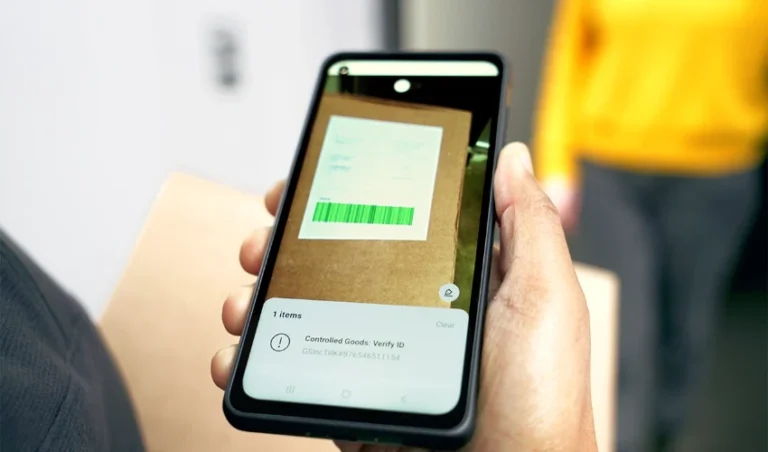The use of fake identification has been prevalent for decades, with technological advancements making them more sophisticated. One of the latest trends is the emergence of scannable fake IDs, which appear more authentic than ever before. But are these scannable fake IDs legal to use? The answer is a resounding no. Possessing, manufacturing, or using a fake ID is illegal in most jurisdictions, and scannable fake IDs are no exception.
Understanding Scannable Fake IDs
Scannable fake IDs are counterfeit identification cards designed to mimic real government-issued IDs. Unlike traditional fake IDs that only replicate the physical appearance of an official document, scannable fake IDs contain embedded barcodes or magnetic strips that can be scanned to display stored information. These IDs often attempt to pass security checks at bars, clubs, liquor stores, and other establishments that require proof of age or identity.
The Legal Consequences of Using a Scannable Fake ID
Using a fake ID, whether Scannable ID or not, is a criminal offense in many regions. The legal penalties vary depending on the jurisdiction but can include:
- Fines: Individuals caught using a scannable fake ID can face hefty fines, often ranging from hundreds to thousands of dollars.
- Misdemeanor or Felony Charges: The severity of the crime depends on state laws, with some treating fake ID possession as a misdemeanor and others considering it a felony.
- Jail Time: In some cases, using a fake ID can result in imprisonment, especially if it is used for more serious fraudulent activities.
- Loss of Driving Privileges: Some states impose additional penalties, such as the suspension of a driver’s license.
- Permanent Criminal Record: A conviction for possessing or using a fake ID can have long-term consequences, making it difficult to secure employment, housing, or educational opportunities.
Why Scannable Fake IDs Are More Risky
Since scannable fake IDs store digital data, they undergo more rigorous verification processes than non-scannable ones. Many establishments use ID scanning technology that reads the barcode or magnetic strip and cross-checks the information with government databases. If discrepancies are detected, authorities can be alerted immediately, increasing the likelihood of getting caught. Additionally, attempting to use a scannable fake ID in airports, government buildings, or financial institutions can lead to federal offenses with severe consequences.
The Role of Technology in Detecting Fake IDs
Governments and businesses have adopted advanced technology to combat the use of fraudulent identification. Some of the methods used to detect scannable fake idzone include:
- Database Cross-Checking: Many businesses verify scanned ID information against government-issued records to detect inconsistencies.
- Holograms and Watermarks: Genuine IDs contain security features like holograms and watermarks that are difficult to replicate.
- Ultraviolet (UV) Light Detection: Some establishments use UV light to reveal security elements that are missing in fake IDs.
- Artificial Intelligence (AI) Verification: AI-powered systems analyze an ID’s features and compare them with official government-issued identification.
Fake IDs and Identity Fraud
While many individuals obtain fake IDs for activities like purchasing alcohol or gaining entry to restricted venues, the use of fake identification is not limited to underage drinking. Criminals often use scannable fake IDs for identity theft, financial fraud, and other illicit activities. The use of fraudulent IDs to open bank accounts, commit credit card fraud, or evade law enforcement can lead to severe legal repercussions.
Alternative Legal Consequences
Apart from criminal penalties, individuals caught using fake IDs may also face:
- Academic Disciplinary Actions: Universities and colleges may impose disciplinary measures, including suspension or expulsion.
- Employment Repercussions: Many employers conduct background checks, and a record of fraud or identity misuse can prevent job opportunities.
- Deportation for Non-Citizens: For non-U.S. citizens, the use of fraudulent identification can lead to deportation or denial of future visa applications.
How to Stay on the Right Side of the Law
The best way to avoid legal trouble is to always use legitimate identification. Here are some alternatives for individuals who might be tempted to use fake IDs:
- Wait Until Legal Age: If the goal is to buy alcohol or enter a nightclub, patience is the best approach.
- Use a Passport or Other Official ID: If you have lost your state-issued ID, use a passport or another legally recognized form of identification.
- Apply for a Replacement ID: If your ID is lost or expired, applying for a legitimate replacement is always a better option.
Conclusion
Scannable fake IDs may seem like a convenient way to bypass age restrictions or gain access to certain privileges, but the risks far outweigh the benefits. The use of such fraudulent documents is illegal, with severe consequences ranging from hefty fines and criminal charges to long-term damage to one’s future opportunities. With law enforcement and businesses constantly improving their detection methods, the likelihood of getting caught is higher than ever. The safest and most responsible course of action is to use legitimate identification and abide by the law.
